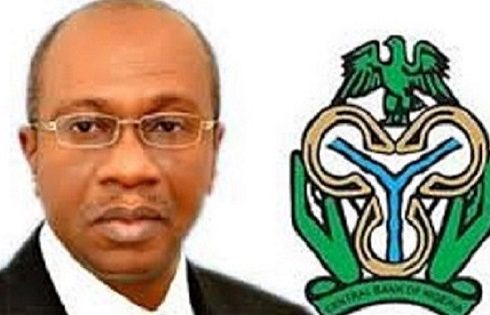In an attempt to unify its multiple exchange rates, Nigeria’s currency’s official value was reduced by 5.5% to 381 per the dollar, according to rates published on the website of the FMDQ OTC Securities Exchange, platform that oversees foreign-exchange trading in Nigeria.
The central bank hasn’t issued a statement about the change and calls to its spokesman seeking comment went unanswered.
The depreciation is another step in central bank Governor Godwin Emefiele’s plan to unify the exchange rates to improve the transparency of its currency-management system. Investors and the International Monetary Fund have said the absence of a single rate creates confusion and deters foreign investment.
Tuesday night’s announcement hasn’t made things any clearer, especially because the central bank’s website still shows the old rate of 360 naira, said Opeyemi Ani, senior analyst at Cordros Securities in Lagos.
“It’s confusing,” he said. “The Central Bank of Nigeria certainly needs to come out and clarify, or FMDQ as to why it was changed.”
Nigeria has operated a multiple-exchange-rate regime since imposing currency controls five years ago, when it was in the midst of an economic crisis spawned by a collapse in oil prices. The country is Africa’s biggest crude producer.
Unified Rates
President Muhammadu Buhari’s administration has pledged to unify the rates as a condition to gain fresh credit from international financial institutions to cover a wide balance of payments gap after this year’s plunge in oil prices. The nation in April secured a $3.4 billion loan from the IMF and is in talks about another loan from the World Bank.
A separate exchange rate generated by sales of foreign currency to exporters and investors, also known as the nafex or the I&E, traded at 387.58 per dollar as of 12:36 p.m. in Lagos. The nafex, which also acts as a spot rate, was introduced in 2017 as a way of wooing back foreign investors spooked by the economic crisis, without formally devaluing the currency. Recently, investors have complained of a lack of liquidity in that market.
If confirmed, the latest devaluation of the official rate would be positive as it signals a move toward convergence with the nafex rate, said Yvonne Mhango, sub-Saharan Africa economist at Renaissance Capital. Finance Minister Ahmed Zainab has said it’s the government’s intention to align the two rates.
“Convergences creates more transparency, which improves investor confidence, and reduces arbitrage opportunities,” Mhango said in an emailed response to questions.
Calls to FMDQ, which is part owned by the central bank and commercial lenders, weren’t answered when Bloomberg sought comment.
-Bloomberg


